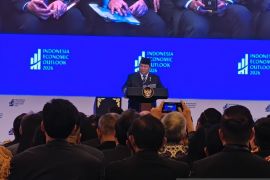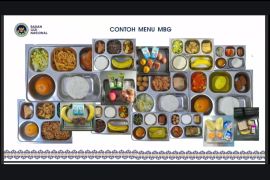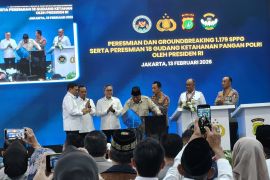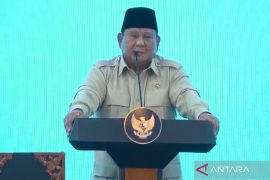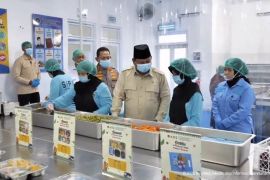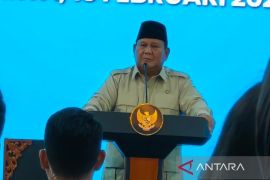In a statement on Saturday, PCO Deputy for Dissemination and Media Information Noudhy Valdryno said the initiative is more than a food aid scheme — it is a long-term investment in the country's children.
The program distributes meals directly in schools through kitchens, officially known as Nutrition Fulfillment Service Units (SPPGs), to ensure they reach communities nationwide.
Beneficiaries include millions of schoolchildren, pregnant women, breastfeeding mothers, and toddlers, giving them daily access to nutritious food.
Valdryno noted that the initiative improves children's concentration, academic performance, physical growth, and brain development.
Over time, it is expected to lay the foundation for a "superior generation" in support of the Golden Indonesia 2045 vision, he added.
"As the School Meals Coalition has stated, this program is particularly well-suited to countries like Indonesia," he said, referring to a global partnership that works to ensure every child receives a healthy school meal.
So far, MBG has reached around 8 million recipients, ranging from early childhood education students to senior high school and vocational school students, as well as pregnant women and toddlers.
Ikeu Tanziha, a member of the National Nutrition Agency (BGN) Expert Council, said the program is already showing measurable benefits.
In Bogor City, for example, monitoring during 15 weeks of implementation found an increase in average body mass index (BMI) among children and adolescents. Similar results were recorded in Aceh, where elementary school students’ nutritional status improved after receiving MBG meals.
Research by the National Research and Innovation Agency (BRIN) supports these findings, showing that the program enhances students' concentration and cognitive abilities, particularly among those who previously skipped breakfast.
A study in Medan, North Sumatra, also linked MBG to improved student motivation, attendance, and classroom focus.
Beyond health and education, the MBG program also boosts the local economy by creating jobs in kitchens and sourcing raw materials from small local suppliers and village-owned enterprises.
Related news: Free meals reach 49 percent of targeted mothers, toddlers in Indonesia
Related news: Indonesia boosts food safety training for free meals program
Translator: Yoanita Hastryka Djohan
Editor: Anton Santoso
Copyright © ANTARA 2025

